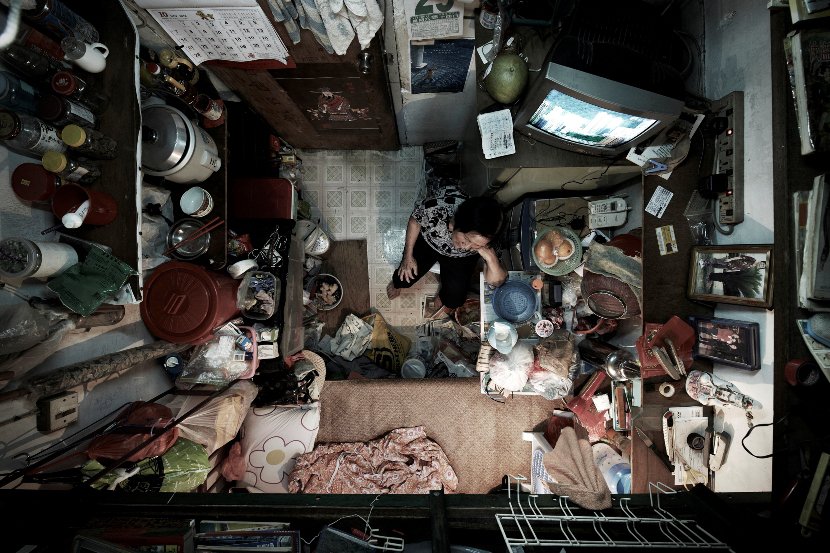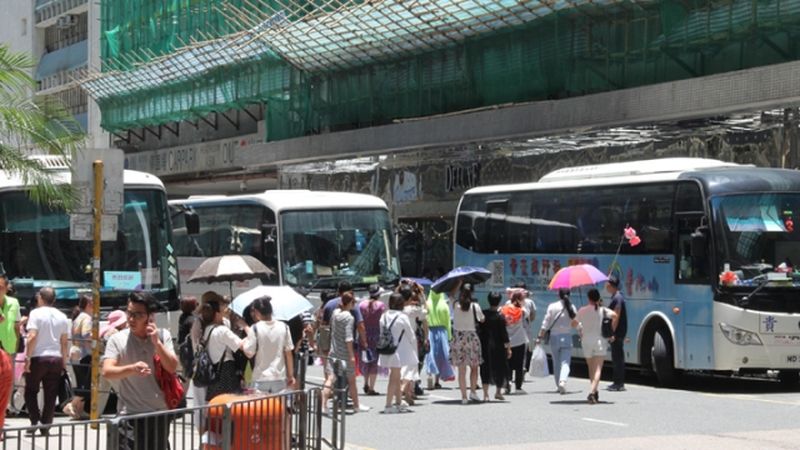Hong Kong Chief Executive Carrie Lam delivered the last policy address of her current term on Wednesday, laying out her vision for the city. Whilst pro-Beijing lawmakers hailed her address, democrats said Lam’s speech was meant for Beijing’s ears ahead of next year’s leadership race, rather than being of benefit to Hongkongers.
Having spotlighted the key policy announcements, HKFP examines what was notably missing from the 2021 policy address, and what the omissions may mean for the city’s future.
Lantau Tomorrow Vision
Lam’s address in 2018 introduced “Lantau Tomorrow Vision”, a gargantuan and controversial plan to create 1,000 hectares of artificial islands off Lantau Island for housing and business. But the reclamation plan was mentioned only three times in her 2021 policy address, with no substantial policy updates.

Although Lam said her government “won’t abandon” the Lantau plan, it appeared to be overshadowed by a newer – and even bigger – development project in this year’s speech. Dubbed the “Northern Metropolis,” the borderzone project will unite existing and planned development areas in the northern New Territories.
The emphasis on creating new land supply for Hong Kong in the coming decades shifted from the sea to the massive landmass bordering the mainland. In what Lam hailed as a “new era” under the security law, the project could be seen as a physical manifestation of the administration’s drive to further integrate Hong Kong into the mainland.
Goodbye, subdivided flats?
The central government has grown increasingly vocal about the need for Hong Kong to tackle the prevalence of subdivided flats and its infamous “cage homes.” Top Beijing official on Hong Kong affairs Xia Baolong has said the city should eradicate subdivided flats by 2049.
However, Lam’s address this year did not offer new solutions to a housing predicament that plagued the city’s working class areas for decades. Despite the address claiming a “top priority area of housing,” the speech did not touch on the “coffin houses” issue other than reiterating that tenancy controls will take effect in January, after a bill that was tabled in July passes at the legislature next week.

Pro-government lawmaker from the DAB, Vincent Cheng, said on Wednesday that he was “disappointed” by the lack of attention paid to the issue. Cheng is a district councillor in Sham Shui Po, a low-income district where subdivided flats are particularly prevalent.
“Honestly this policy address did not explain how we can bid farewell to subdivided flats… or how these residents may see a roadmap on truly saying goodbye to these flats,” he said. “I hope the government can make better promises to these 110,000 households.”
Meanwhile, the policy address said the government will be “substantially increasing the rent allowance” for the poor as a subsidy measure – but the move was lambasted by Roundtable lawmaker Michael Tien. “Rent allowance is increased substantially on one hand, and on the other, placed no cap on the starting rental rate [in tenancy control]. This is to hose money from the public coffers into the pockets of subdivided flat owners,” he said.
The rent allowance is subsidy given to Comprehensive Social Security Assistance recipients to cover the cost of accommodation.
Struggling tourism sector
The tourism and aviation industries have continued to suffer as the pandemic drags on, and Hong Kong remains closed to international travellers unless they go through an extended hotel quarantine and series of virus tests. Meanwhile, the vast majority of Hongkongers are barred from entering the mainland. Lam’s policy address recognised that the tourism sector was “still in hardship,” but did not offer renewed subsidies nor aid for the sector.

Instead, she said her government will “continue to implement” existing measures that would prepare the industry for recovery, such as plans to establish a Tourism Industry Authority and other less specific plans connected to the Greater Bay Area.
There was also no update on how Hong Kong will meet Beijing’s expectations over establishing a quarantine-free travel bubble with China, though Lam said earlier this week that the top priority was to resume border-crossing with the mainland as opposed to the rest of the world.
Tourism sector pro-government lawmaker Yiu Si-wing noted the omission on Wednesday, saying: “The HKSAR government gave tourism sector some support twice, but we don’t see how the sector could recover in the next months or half a year… There’s no mention [of support],” he said.
‘Fake news’ law
Lam and other top government officials including Chief Secretary Chris Tang and police chief Raymond Siu repeatedly said the city must outlaw “fake news.” While the 2021 address mentioned that the government needed to combat the issue, it did not offer specific measures, nor reveal details about rumoured legislation in the works.

While the Home Affairs Bureau was tasked with studying the potential for a Singapore-style “fake news” law, no responsible officer from the bureau was present at a closed-door briefing session to address questions from the press last Wednesday ahead of Lam’s policy address.
policy address 2021
Support HKFP | Policies & Ethics | Error/typo? | Contact Us | Newsletter | Transparency & Annual Report | Apps
Help safeguard press freedom & keep HKFP free for all readers by supporting our team

LATEST FROM HKFP
HKFP has an impartial stance, transparent funding, and balanced coverage guided by an Ethics Code and Corrections Policy.
Support press freedom & help us surpass 1,000 monthly Patrons: 100% independent, governed by an ethics code & not-for-profit.










